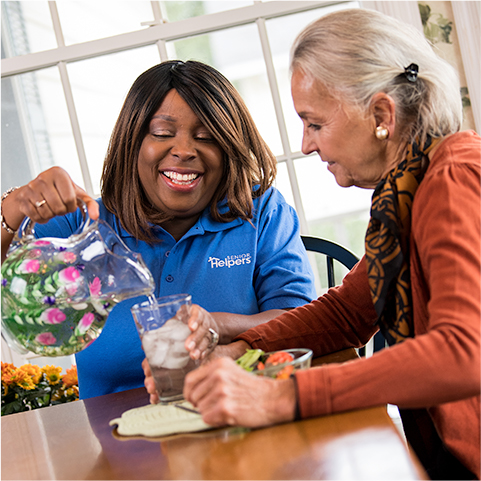5 Ways to Help Your Loved One Manage Parkinson's Disease
Caring for a loved one who has Parkinson's disease presents a host of challenges to caregivers and care partners. Not only does the disease impact the patient, but it also presents the home caregiver with a significant level of responsibility.
With the first of its kind Parkinson's care program in the in-home care industry, the Senior Helpers' Parkinson's Care Program provides our caregivers with personalized care plans and additional training to care for people with Parkinson's disease.
Here are five tips on how you can be a better Parkinson's caregiver.
1. Learn More About the Disease
Several investigative and educational materials can help you understand more about the disease and its progression. You can learn from non-profit organizations such as Parkinson's Foundation, which offers educational books and podcasts. They also have Parkinson's disease conversations where you can find specific answers or talk to people going through similar experiences.
2. Honor the Doctor's Appointments
In the beginning, your loved one may be capable of taking themselves to the doctor. However, it would be best if you always tried to accompany them to these appointments. You can then ask questions, take notes and bring up some issues that your loved one may forget to bring up. You can have a notebook where you note down a list of questions based on your daily experience caring for a loved one with Parkinson's.
3. Be Observant
Parkinson's is a progressive disease; the symptoms and movement abilities change over time. This is especially after changes in medication or therapy. Noticing these changes in a loved one will help you understand how involved you need to be in their care.
You may also look out for things your loved one may not be aware of (or could be in denial), such as new impairments. For instance, your loved one may not notice that they are not in a position to drive anymore.
4. Face the Challenges Ahead
As the disease progresses, you may need to assist your loved one in bathing, transfers from chair to bed, and many more physical tasks. You may need to get some training from a qualified occupational therapist on how to provide care correctly. You can also ask the healthcare team to recommend modifications to your home environment to reduce the physical burden.
5. Ensure Medications Are Taken.
You can set a reminder on your smartphone or agree on a tool that will ensure that your loved one doesn't skip any medication. You can even have a calendar that helps you to keep track of medications while keeping notes of some side effects of these medicines. You can then bring these up during doctor's appointments.
Our Final Word
Understanding your responsibilities and how you should be involved in taking care of a loved one with Parkinson's disease is essential. To get more information on how you can be a better Parkinson's caregiver or get to know how we at Senior Helpers of Greater Oklahoma City help your loved one with specialized Parkinson's care, please contact us at 405 608 4339.
